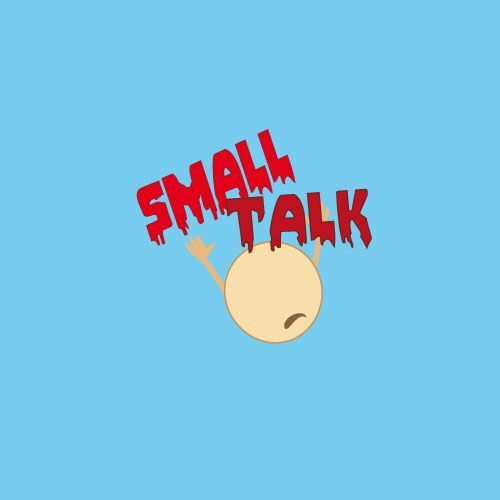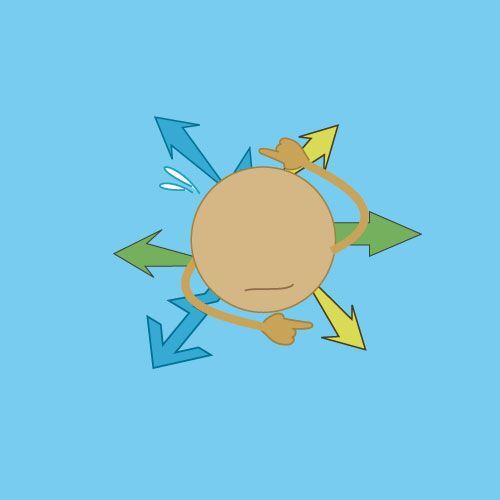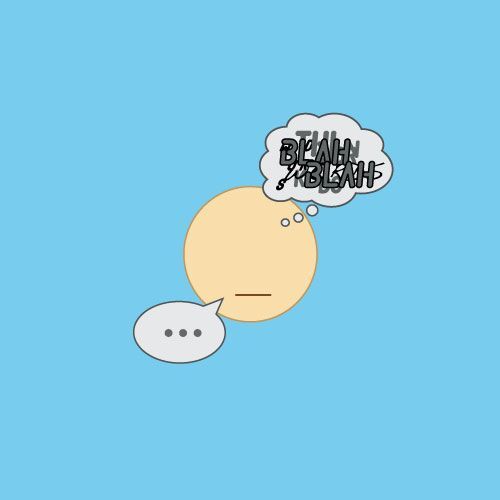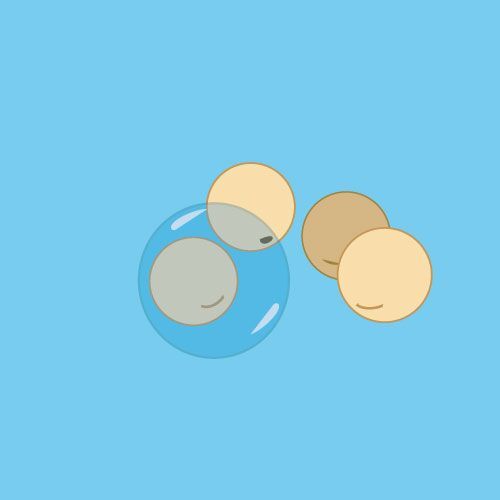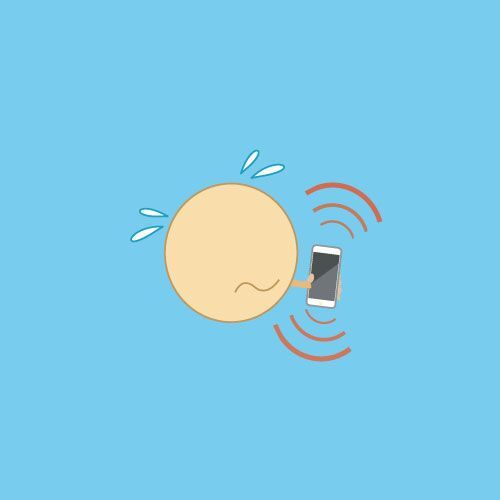Oh-so-adorable Introjis are emoticons created by designer Rebecca Evie Lynch that help introverts visually communicate their thoughts, feelings, needs, and anxieties. As an introvert, you can slip an Introji into a text message, and suddenly you don't have to explain to your friend or significant other that you need time alone or want to leave the party now, because the icon says it all.
When Introji made its debut on Tumblr and Facebook a few months ago, introverts quickly fell in love with the little round faces that dislike small talk, read books, and need downtime to recharge. Lynch launched an Indiegogo campaign in May to fund an app, and within weeks, Introji-enthusiasts donated all the money she needed and then some.
The long-awaited little characters are almost here -- pending approval, the app will be available in the Apple App Store and on Google Play starting June 6. A free version of the app will feature 12 of the most popular designs, or for a small fee, Introji-lovers can download the full version, which contains over 70 emoticons.
Introjis help the world understand what it means to be an introvert:
1. We're not necessarily shy.
Shyness and introversion aren't the same thing: Shyness is the fear of being judged negatively by other people, while introversion is a preference for quiet, minimally stimulating environments, writes Susan Cain, author of the book, Quiet: The Power of Introverts in a World That Can't Stop Talking. We introverts may act shy, though, if we're feeling self-conscious.
2. Our "batteries" need recharging after being social.
Even when we enjoy ourselves, socializing drains us, especially if it's with large groups or people we don't know well. If we suddenly become recluses and hardly talk to anyone for a few hours or days, please don't take it personally. It's not that we dislike you, it's just that solitude is a must for us to maintain our energy and sanity.
3. Small talk is painful.
The weather? That local sports team? Small talk feels so contrived, plus, we usually don't know what to say. However, this doesn't mean we don't enjoy conversation. In fact, we love connecting authentically or talking about big ideas.
4. We concentrate best when it's quiet.
On our jobs or at school, we do our best work when we have privacy and there are minimal interruptions and noise.
5. There's a lot going on inside our heads.
Introversion is all in our heads. Literally. Dr. Marti Olsen Laney writes in her book, The Introvert Advantage: How to Thrive in an Extrovert World, that our brains really are different from the brains of extroverts. When information enters the brain of an introvert, it travels a longer pathway and passes through more areas of the brain, including areas associated with self-reflection, empathy, planning, and evaluating. This means we process information more thoroughly and deeply. Another difference is we're more sensitive to the brain chemical dopamine. While extroverts crave the "happiness hits" that dopamine provides when they take risks or seek novelty, we introverts feel overstimulated when dopamine floods our brains.
6. Sometimes we drown in our own thoughts.
Because of our deep processing of information, we may be professional over-thinkers, over-analyzers, and over-worriers.
7. Decisions may take time.
We often see problems from many different angles or perspectives, and we can imagine every possible outcome -- good or bad -- that could result from a choice. Sometimes this paralyzes us in indecision.
8. It can be hard to put our thoughts into words.
When speaking out loud, finding the right word can be hard, because we tend to use long-term memory rather than short-term memory, writes Laney. It takes longer to retrieve words and information from long-term memory, so we often find ourselves speaking slowly or feeling tongue-tied. If you want to know what we really think, ask us to write about our thoughts (writing uses different pathways in the brain, which seem to flow fluently for introverts). Or tell us we don't have to answer right away.
9. Sometimes we get stuck in our heads.
And we need a caring friend to draw us out.
10. Crowds and a lack of personal space may make us anxious.
No personal space invaders, please.
11. Don't judge us if you see us alone in public.
A table for one at a restaurant or coffee shop gives us the chance to do what we do best, which is to quietly observe.
12. Sometimes we just like to listen.
If we're quiet in a group or during a meeting at work, it probably means we're just listening and thinking about what everyone is saying. Want to hear our take? Ask us later, one-on-one, after we've had time to collect our thoughts.
13. Sometimes we just don't have any words.
And that's okay.
14. Socializing in a group may leave us feeling lonely or bored.
But we often come alive when interacting one-on-one.
15. Even if we say no, we still like being invited.
We won't attend every party or get-together, but it's nice to know that someone was thinking of us. We need to know that we're accepted and cared about, too.
16. In most cases, we'd rather text than talk on the phone.
It goes back to that whole "it's easier to write than speak" thing. When someone calls us unexpectedly, we may not pick up, because we don't feel mentally prepared for the social interaction.
17. We recharge by doing activities that pull us inward.
Reading, journaling, quietly solving a crossword puzzle, or any other solitary activities allow us to visit our favorite place: our inner world of thoughts, feelings, and imagination.
18. Binge watching Netflix alone = a glorious way to spend the weekend.
It's not sad, it's automatic recharge time.
19. Sometimes being in our "introvert bubble," e.g., focused inwardly, is exactly where we want to be.
So don't pop it.
20. Other times, our solitude becomes painful loneliness.
Introverts need people, too.
21. We don't let just anyone into our lives.
The people closest to us don't just accept our introverted nature. They respect, support, and cherish it.
22. We love being "alone together."
Introvert relationship goal: cuddling with or sitting near your significant other -- quietly, of course! -- while reading a book, surfing the Internet, playing a video game, or watching a movie.
23. When we're "fully charged," we're ready to take on the world!
To be at our best, we must balance socializing and activity with solitude and introspection.
Also on HuffPost:


